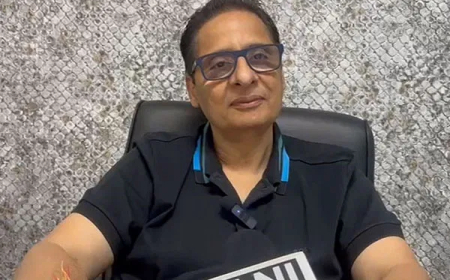Remotely Monitoring Patients after a Heart Attack Cuts Hospital Readmissions and Improves Outcomes
Telemedicine patients were 76 per cent less likely to be readmitted to hospital within six months.

Remote monitoring for patients who have recently had a heart attack reduces A&E attendance and prevents readmissions to hospital, according to research funded by the British Heart Foundation (BHF). The findings suggest that remote monitoring could help to tackle record waiting lists [1] by easing pressures on NHS emergency departments and cardiology wards.

The study is presented today at the American College of Cardiology (ACC) conference in Atlanta and published in the Journal of the American College of Cardiology (JACC).
The remote monitoring approach, otherwise known as telemedicine, involved patients sending their vital signs and calling specialist cardiology teams for a remote consultation when they experienced worrying symptoms.
In the study, telemedicine patients were 76 per cent less likely to be readmitted to hospital within six months and 41 per cent less likely to attend A&E compared to those who received the usual care [2].

Telemedicine patients also had a 15 per cent lower risk of repeat heart attacks after nine months, and a lower number of unplanned surgical procedures on the blood vessels of the heart. The rate of strokes was also lower in the telemedicine group.
In the UK, around 100,000 hospital admissions a year are due to a heart attack. Around 15 per cent of patients admitted to hospital for a heart attack in England are readmitted as an emergency within 30 days of being discharged [3].
Using telemedicine allowed cardiologists to assess patients before they came to hospital to judge whether A&E attendance was necessary. Even for those who were readmitted to hospital, the average length of stay was half a day – much less than the average one and a half days in the standard care group.
Data also showed that telemedicine patients were less likely to report symptoms including chest pain, dizziness and shortness of breath [4].

Dr Ramzi Khamis, Consultant Cardiologist and BHF Research Fellow at the National Heart and Lung Institute, Imperial College London said:
“The approach we designed and tested is focused on sparing valuable time and resources while reaching a well-informed treatment plan for high-risk patients experiencing worrying symptoms. The study clearly showed that sending vital information straight to cardiology teams, coupled with a consultation, led to seemingly better care, reductions in admissions, average length of stay and A&E attendance."
“This simple strategy can potentially free up thousands of hospital beds and doctors’ hours across the country whilst keeping patients just as safe. We are now looking at working with the NHS and other healthcare systems globally to adopt this strategy and hopefully improve treatment for future patients.”
The research, led from Imperial College London by principal investigator Dr Ramzi Khamis and clinical research fellow Nasser Alshahrani, involved 337 patients who came to Hammersmith Hospital with acute coronary syndromes (ACS) over 15 months.

Acute coronary syndromes are a group of life-threatening conditions that involve reduced blood flow to the heart, including heart attacks and unstable angina – a more severe form of angina which can happen at rest and doesn’t improve with rest or medicines. The majority of those in the study – 86 per cent – were men, reflecting the demographics of the patients who attended Hammersmith Hospital’s heart attack centre with ACS during the study.
Patients in the trial were randomly assigned to receive telemedicine or standard care. The 163 patients in the telemedicine group were provided with a blood pressure monitor and a pulse oximeter to measure blood oxygen levels. They were also given a cutting-edge 12-lead electrocardiogram (ECG) belt device to record a detailed heart rhythm trace and transmit it to the specialist team for review. They were trained on how to use each to easily measure their vital signs [5].
The 167 patients who received standard care were discharged with medication and told to go to a doctor or hospital if they experienced heart symptoms.
Telemedicine patients were told to send in their vital data to the trial team if they experienced symptoms of a potential heart problem. A cardiologist then contacted them to perform a remote clinical assessment.
The seriousness of a patient’s condition was assessed using rules developed by the research team and the patient was either reassured, advised a non-urgent follow-up or advised to attend A&E or call 999.

Professor James Leiper, Associate Medical Director at the BHF, said:
“The results of this study are very encouraging and have the potential to relieve some of the current pressure on the NHS as hundreds of thousands of people wait for urgent heart tests, treatments and check-ups. The findings suggest that telemedicine may have a significant role to play in freeing time and space in hospitals, whilst maintaining safety and even improving outcomes for at-risk patients.
“It is important that the NHS has enough trained and supported staff to deliver on this approach, and the tools to identify and target the right patients. Telemedicine could prove to be a valuable tool for clinicians to bring real improvements for patients during a difficult time in their lives.”
This research was also supported by the Imperial College Healthcare NHS Trust. To find out more about chest pain and when to get checked, visit https://www.bhf.org.uk/chestpain.














































